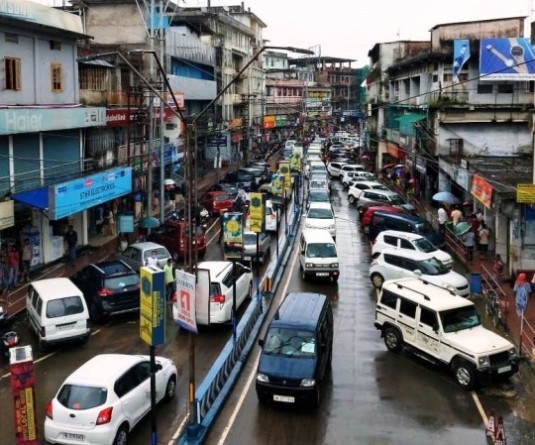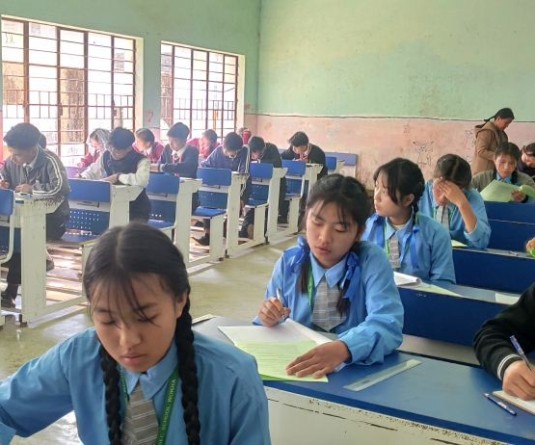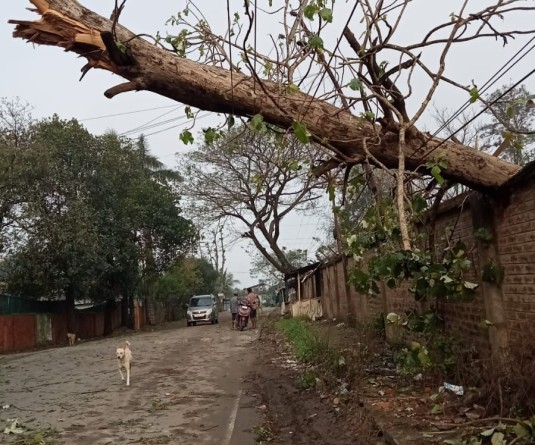
Morung Express News
Zubza | September 12
The implication of the Naga struggle on neighbouring states and people is a topic rarely discussed. The implications include, some observers stated, formation of rebel groups, deaths, torture, forced recruitment and psychological trauma. These are often faced by people in the states of Assam, Arunachal Pradesh and Manipur.
A discussion held at Kerünyü Ki (The House of Listening), Zubza, attended by journalists, activists, intellectuals from the North East on September 12, focused on these implications.
Labelling it as a ‘spillover’ of the Naga struggle, Arunachal Pradesh based Activist Jarjum Ete highlighted the various consequences of the Naga movement in Arunachal Pradesh. Women and mothers lost their husbands and sons either at the hands of the military or the militants.
“A lot of times a woman cannot even call herself a widow unless she sees the body of her husband,” said Jarjum mentioning that so many women have to wait for years to know if their husbands are dead or alive. Parents are compelled to send their children to study and work outside the state in order to protect them from the insurgent groups as well as the army. “Parents do not want their children to come back home because they will be picked up by the militants especially the younger men,” added Jarjum.
Further, the implications are sometimes indirect and insidious, in the form of psychological trauma and distress. “Sometimes violence is about people living in distress, and psychological pressures which are not visible,” stated Jarjum adding that many men have become victims of alcohol and opium abuse in conflict/disturbed areas of Arunachal Pradesh.
Narrating the story of a woman who lost her husband to alcoholism (Doctors report in many cases the cause of death as ‘alchohol’ or ‘liver sclerosis’) Jarjum mentioned a poignant line the wife said, “They don’t mention why he became an alcoholic in the first place.”
The Activist also mentioned how this issue was often brought up in national and international forums addressed towards Naga representatives; however the “response has never been clear,” according to Jarjum.
It may also be noted that similar implications have been faced in Naga areas in Assam where the Naga inhabitants fall victims to the brutalities and suspicion of underground armies and the Indian army. Often houses are raided, men are picked up, arrested and tortured.
The failure of the Nagas to address these implications towards people in neighboring states was pointed out. Responding to the comments, Niketu Iralu noted how Naga history is a result of the responses to the challenges Nagas faced during the departure of the British colonialists and the domination of the Indian Union. However the struggle failed to re-examine itself which led to the implications and crises.
“A struggle not examined is absolutely hellish and impossible to tackle,” said Iralu, adding that Nagas must learn to admit their mistakes and further learn to do better. According to Jarjum, “It was an aspiration that could not be handled.”
A Naga elder present at the discussion, while apologizing for the consequences, said, “We have become victims of each other.”
Present at the discussion were senior journalist Neerja Chowdhury from New Delhi who raised the issue of Naga women’s representation in politics where the present Nagaland Legislative Assembly does not have a single woman MLA. Promod Boro, President of the All Bodo Students’ Union, and renowned journalist and editor Patricia Mukhim from Meghalaya, highlighted the need for a united North East forum which can represent the entire North East.





